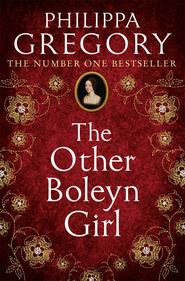По всем вопросам обращайтесь на: info@litportal.ru
(©) 2003-2025.
✖
Virgin Earth
Настройки чтения
Размер шрифта
Высота строк
Поля
J pointed towards the deeper trees to their left. She nodded and stepped before him, made that little confident gesture that told him to follow behind her, and led the way.
She moved as quietly as an animal through the shadows and the trees. Not even the arrows in her quiver rattled together. The tiny, almost invisible, track was blocked at every pace by a fallen log or a strand of creeper stretching from one tree to another. She trotted over the one and ducked beneath the other without ever breaking her steady stride. J, out of breath, breaking twigs and kicking stones with his heavy shoes, ducking beneath vines, rubbing his face against the trailing disagreeable stickiness of spiders’ webs and the stinging moths, stamped behind her like a pursuing cart horse.
She did not look around. ‘Well, she hardly needs to look to know that I am following her,’ J thought. The noise alone was enough to alert all of Virginia. But she did not even glance to see if all was well with him. She just went at her slow steady trot, as if having been assigned the task of taking him into the deep forest she need no longer consult him until she delivered him to his destination.
They jogged for about half an hour as J’s breathing went from a pant to a straining, painful snatching for breath, until at last they came to a clearing where she paused and turned. J, who had been watching every step on the treacherous path, though blinded by his own sweat and dazzled by a cloud of stinging insects, dropped to the ground and whooped for air. Courteously she hunkered down beside him, sitting on her heels, and waiting, composed and silent, for the white man to stop panting and mopping his face, and grabbing at his side where he had a stitch and at his ankle where he had a sprain.
Slowly J fell silent. The noises of the wood which had been obscured by his trampling progress rose up all around him. There were frogs croaking from the river behind them, there were crickets singing. There were birds singing in the thick canopy of leaves above them, pigeons cooing, jays calling, and an interweaving of sounds which J, a town boy, could not recognise.
He heard the rasp of his own breath subside and he turned to look at her. She was quiet and composed.
J gave her a small, almost apologetic, smile, and lifted his hand to the neck of his thick linen shirt and flapped it to indicate his heat. She nodded solemnly and pointed to his thick jacket.
J, feeling every inch a fool, slid his arms out of the sleeves and handed it to her. She folded it as carefully as a housewife in England and put it beside them and scattered a handful of leaves and moss on it. At once it had disappeared. J blinked. He could not even see the outline of it. She had hidden it completely.
She turned and pointed at his breeches and his boots. J shook his head.
Again she pointed at his breeches and mimed pulling them down. J, feeling like an aged virgin clutching to modesty, held the waistband tighter to him. He saw the glimpse of a smile cross her face but then she moulded her expression into impassivity. She gave a little shrug which said as eloquently as any words that he might wear his breeches if he chose to be hot and uncomfortable, and keep his boots if he wanted to alert the whole forest by his heavy tread.
She made a small gesture with her hand that said: ‘Here. Trees,’ and then she sat back on her heels and looked at him expectantly.
The trees were coming into leaf. J gazed around in wonderment at the height of them, at the richness of the growth, at the vines which looped one to another and twisted around them. Some of them he could recognise as English trees and he found he was nodding towards them, almost as a man might greet the welcome sight of an acquaintance in a strange land. He saw elderberry bushes, oak, hornbeam, cherry trees, walnut trees and dogwood with a sense of relief. But there was also a jumble, an overwhelming richness of foliage and trunk, bark and small flowers, that he could not name, could not identify, that crowded upon him, all beautiful or interesting, large or shapely, calling for his attention and competing with each other. J rubbed his hand across his sweating face. There was a lifetime’s work here for a plant collector; and he had promised his father to be home by early summer.
He glanced at the girl. She was not watching him, she was sitting on her heels, waiting patiently, as steady and still as the trees around them. When she felt his gaze upon her she looked up and gave him a small shy smile, a child’s smile, as if to say that she was proud of her little cleverness in bringing him to the heart of the wood, happy to wait until she could demonstrate her cleverness at fetching him home. It was a smile that no father could have resisted. J smiled back at her. ‘Well done,’ he said. ‘This is just what I wanted.’
The girl did not lead him home until the evening and then her little bag was packed with seedlings that J had dug from the forest floor. J was carrying his hat like a bowl, filled to the brim with tiny tree seedlings, each showing no more than a pair of leaves, a white stem and a trail of little roots. There were more plants packed into the pockets of his breeches. He had wanted to put some in her quiver but she had shaken her head decisively, and when he proffered the plants again, she had stepped back from him to show him why she refused.
In one swift movement the bow came off her shoulder and into her hand, with the other hand she had an arrow out of the quiver and notched on the bow. She was ready with a sharpened reed arrow head in moments. She nodded; her meaning was clear. She could not waste time fumbling with plants in her quiver.
J tried to hide a smile at this child’s seriousness over a child’s toy. She was certainly deft; but the bow was a tiny one and the arrows were as light as their flights: made of reed, tipped with sharpened reed.
‘May I see?’ he asked.
She unstrung the arrow from the bow and handed it to him. At once he realised his mistake. The arrow in his hand was a killing blade. The reed at its head was honed to razor sharpness. He drew it against his thumb and there was no pain, but a fine line of blood bloomed at its touch.
‘Damnation!’ he swore, and sucked his thumb. It might be made of reed, it might be so light that a young girl could carry it all day; but the arrow head was sharper than a knife.
‘How exact is your aim?’ J asked her. He pointed to a tree. ‘Can you hit that?’
She stepped towards the tree and pointed instead to a leaf which was shifting slightly in the wind before the trunk. She stepped back, notched the arrow into the bow and let fly. The arrow whistled softly in the air and thudded into the tree trunk. J stepped forward to look. There were traces of the leaf around the arrow shaft: she had hit a moving leaf at twenty paces.
J made a little bow to her, and meant the gesture of respect.
She smiled, that little gleam of pride again, and then pulled the arrow from the tree trunk, discarded the broken arrow head and replaced it with another, put the arrow back in her quiver and led the way from the forest clearing at her usual trot.
‘Slower,’ J commanded.
She glanced at him. He was clumsy with tiredness, his leg muscles singing with pain, and unbalanced by his burden of seedlings. Again he saw that small smile and then she turned and walked before him with a loping pace which was only a little slower. She paused for a moment in the clearing where he had thrown off his jacket and picked it up, dusted off the leaves and handed it to him. Then she led the way back to the hollow tree at the edge of the forest. She hid her bow and arrow in the trunk and drew out her servant’s shift.
J, after a long day of jogging behind her dappled flanks, was now accustomed to her nakedness. He found that he liked the gleam of her skin better than the crumpled mess of the shift. He thought she was diminished by the gown, she looked less modest than in her proud tattoos and buckskin. He made a little shrug to show his sense that she was returning to some sort of unnatural constraint and she nodded at his sympathy, her face grave.
‘You will stay at my inn tonight,’ J said, pointing down to Jamestown where there were already lights showing and chimneys smoking.
She neither nodded nor shook her head, she was frozen still, her eyes never leaving his face.
‘And tomorrow we shall go out into the forest again. Mr Joseph said you should come out with me every day for a month, until your mother is freed.’
She nodded her consent to that. Then she stepped forward and pointed at the little plants in his pocket and gestured towards the river. She mimed the strong paddling of a canoe, out towards the sea. Her hand gestured to the right, they should go south, she waved, a long way, waved again, a very long way; then she stepped back from him and with her arms spread and her shoulders rounded she mimed for him a tree: a tree with branches that bowed down, bowed down low over still water, spread her fingers: with branches that trailed into the water.
J was entranced. ‘But can we get a canoe?’
The girl nodded. She pointed to herself and held out her hand, pointing to her palm, the universal mime for money. J proffered a silver coin, she shook her head. He drew out his tobacco pouch. She nodded and took a fat handful. Then she pointed his face towards Jamestown, looked into his eyes again as if she were reluctant to trust so stupid a man to find his own way home, and then she nodded at him and turned towards a shrubby bush.
In a second she had disappeared. Disappeared without trace. J saw the little branches of the bush quiver and then she was gone, not even a glimmer of the servant’s smock showing in the darkness. For a moment he waited, straining his eyes against the failing light to see if he could spot her, but she had disappeared as surely as a roe deer will vanish by merely standing still.
J, realising that he would never find her against her will, knowing that he had to trust her, turned his face towards Jamestown as she had bid him and trudged home.
When the lodging-house woman knew that J had spent all day with the Indian girl in the woods, and would spend nights away with her, she was scathing.
‘I’d have thought a man fresh out of England could have done without,’ she said. She dumped in front of him a wooden bowl filled to the brim with a pale porridge.
‘Suppawn,’ his fellow lodger said out of the side of his mouth. ‘Indian cornmeal and milk.’
‘More corn?’ J asked.
The man nodded grimly and spooned his portion in silence.
‘I’d have thought you could have brought a woman from England, if your needs are that urgent,’ the woman said. ‘God knows, the town needs more women. You can’t make a plantation with nothing but soldiers and fools.’
J bent his head and slurped porridge from his spoon.
‘Don’t you have a wife you could have brought?’ the woman demanded.
Grief stabbed J like a knife in the belly. He looked up at her and something in his face silenced her nagging.
‘No,’ he said abruptly.
There was a short embarrassed silence.
‘I’m sorry,’ she said, ‘if I spoke wrong …’
J pushed away the bowl, the familiar feeling of grief choking him from his belly to his throat.
‘Here,’ the man offered. He produced a leather bottle from the folds of his breeches and poured a slug over J’s unwanted porridge. ‘Have a drop of Barbados rum, that’s the thing to give it flavour.’ He poured a measure for himself and stirred it in. He waved to J with his spoon. ‘Eat up,’ he said with rough kindliness. ‘This is not a land where a man can go hungry and eat later. Eat up and drink up too. You never know where your next meal is coming from here.’
J pulled his bowl towards him, stirred in the rum and tasted the porridge. It was much improved.
‘The girl is guiding me to plants and trees,’ he said to them both. ‘As I told you, I am a collector. Neither the governor nor Mr Joseph could think of anyone else who could assist me. But she is a good little girl. She is not much older than my own daughter. I should think she is little more than thirteen. She leads me to the forest and then waits quietly and leads me home.’












